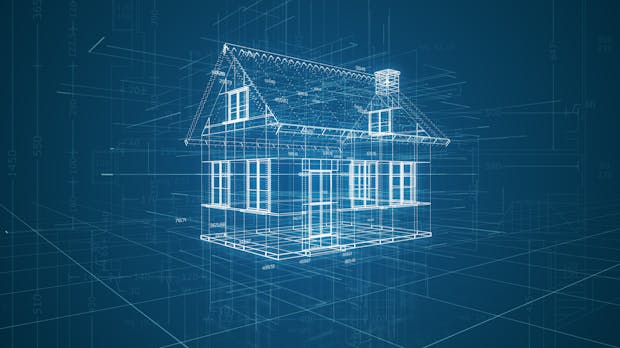

What are the challenges of real estate digitization ?


Digital and real estate, a decade ago, this association didn’t seem so obvious. The real estate sector being perceived as something that is not very modern, frozen, and very late in adopting new processes. Unlike others sectors affecting only a part of the population, real estate concern all of us, daily. Housing, whether renting or buying, is the first item of expenditure for people and one of their central concerns.
In our days, the digital and real estate sectors go hand in hand together under the “PropTech” banner.
The arrival of new technologies in the real estate sector (Proptech), push the current players to rethink their offers and their property marketing. The real estate sector faces an uberisation : the users in the sector are demanding innovation and new functionalities. Concretely, the digitization of the real estate sector requires the adoption of technological tools that will disrupt current processes and uses.
However, the sector is not completely transformed, in 2020, we are still living in houses and apartments, and property developers are still building properties. We can imagine that in the near future, the profession of real estate agent will disappear. In fact, two Oxford researchers have asserted with 97% certainty that the profession of real estate agent would disappear in the coming decades. Why ? Because today 90% of housing searches begin first online, platforms such as Leboncoin, Seloger Neuf or PAP allow individuals to put their housing on the market without going through a real estate agent.
The digitization of real estate has had several consequences for the sector:
- The arrival of new stakeholders
- The creation of new uses
- The process changes of the historic stakeholders in the sector.
The arrival of new stakeholders
The real estate industry has its historic players who have dominated the market for decades. The arrival of new technologies has allowed the arrival of new players on the market. Many tech start-ups have created tools to reduce the pain point for the real estate sector: virtual apartment visits, digitization of sales, personalization of accommodation, online customer reviews, collaborative residences, pooling of common areas, etc. These solutions are mainly marketed to real estate professionals but designed for the end users of housing, that is to say individuals.
For real estate professionals, new technologies help boost productivity, simplify processes, but also to allow them to refocus on people and on the expectations of future buyers. More than ever the expectations of users in terms of supply and support in the search for accommodation are important.
These Proptechs have been able to provide solutions and reduce pain points where historical players have not done so. These solutions were born out of observations. It is by thinking from the point of view of the client that you come to realize the problems and therefore be able to offer solutions.
The creation of new uses
For real estate professionals, the challenges of real estate digitization are to adopt new processes and / or new uses that make it possible to increase business through the creation of real added value to their offers. We must not fall into the trap of adopting digital processes aimlessly and without expecting real benefits, but be able to have the necessary perspective to identify the "pain point" of its activity and its customers, who can be corrected through the adoption of digital solutions.
There are many new uses for digitizing the real estate sector: searching for real estate online, visiting the property in virtual reality, digitizing the sale of the property, managing your property remotely, etc.

The digitization of the real estate sector must above all bring real added value, whether for professionals, homes or end customers. Time savings, greater performance, easier projection, better user experience etc.
Regarding developers and marketers of real estate, the adoption and generalization of the virtual visit of a property responds to a real difficulty for professionals, but also for future buyers. The virtual visit saves considerable time for the professional who does not have to travel to show the property physically and, on the buyer side, it allows a real projection in the accommodation with the consideration of all the elements.
The change in the processes of the historic players in the sector
The digitization of the real estate sector has created new uses, but has also changed the processes of current players in the sector. Today, the marketing of real estate is done first on the internet, in 90% of cases. The current players in the sector had to adapt to market developments, adopt new processes, train in new technologies, review their offers and their real estate marketing.
The digitization of real estate, mostly driven by start-ups, has prompted players to follow suit. Many developers, market leaders have adopted the innovative Unlatch solution to digitize their real estate sales.
Real estate, long criticized for its slowness and its rigid process, is being digitized. Due to its importance and specificities, the shift to digital can seem longer and more complicated than for other sectors. However, the actors - old or new - of the real estate sector have had a real awareness and have mobilized to rethink the market and its uses, through the use of digital and new technologies.
Read similar articles.

Property development software: the complete guide for developers
How to choose the right software for managing your property developments? Feature comparison, key capabilities and selection criteria. Expert guide for developers.

Property ERP: centralise your development management
Why a dedicated property development ERP transforms how you manage your portfolio? Benefits, features and selection criteria for UK developers.

5 Mistakes to Avoid When Marketing a New Build Development
Common pitfalls in new build property marketing and how to avoid them. Expert guide for UK property developers to maximise sales velocity.





